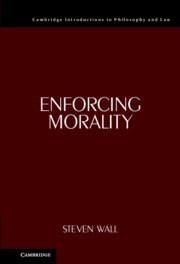2 - Mill’s Principle
from Part I - Background Controversies
Published online by Cambridge University Press: 03 November 2023
Summary
The harm principle sets a limit on the justified legal and social control of individuals. The principle also provides a widely accepted justification for such control. This chapter critically reviews John Stuart Mill’s understanding of the harm principle and the considerations he advanced in its support. It also draws on other discussions of the principle to assess its plausibility in general. Mill took the harm principle to be the sole ground for justified interference with the liberty of individuals, but less restrictive defenses of the principle are available. The content of the harm principle, on any of its formulations, is shaped by the characterization of harm that figures in it. A good characterization of harm should be both descriptively accurate and morally appealing, but these two desiderata can pull in opposing directions. This chapter argues that the characterization of harm that figures in the harm principle must advert to the grounds that justify the principle, but these grounds are multiple and can come into conflict. Mill presents both an autonomy argument and a social learning argument in support of the harm principle, but the ground of autonomy can speak in favor of interference in cases where the social learning argument speaks against it. The chapter concludes with a brief discussion of harm, speech and offense.
- Type
- Chapter
- Information
- Enforcing Morality , pp. 23 - 43Publisher: Cambridge University PressPrint publication year: 2023



